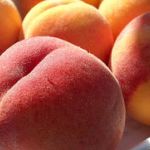
Poets are by turns lyrical, expressive, rhythmic, and profound, but perhaps most of all, they are intense. Their intensity manifests in the sharp eye they cast on the world and every detail in it, the careful, sustained scrutiny they give to every object, person or situation in front of them, and to every resultant thought in their mind and gut that is yearning for expression.
It is this intensity that perhaps most shines forth from poet Christian Wiman’s recent memoir, “My Bright Abyss: Meditation of a Modern Believer.”
If poetry has a way of concentrating the mind, then a wretched and ostensibly terminal disease befalling the poet no doubt does that concentration one better. Wiman has been suffering/benefiting from this fate for nearly eight years now, holding at bay a rare blood cancer that struck him at age 39 and which his initial prognosis suggested would kill him long ago...
Read More











Recent Comments